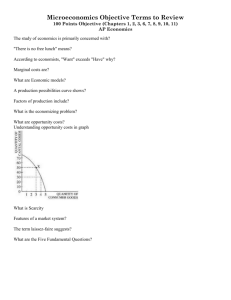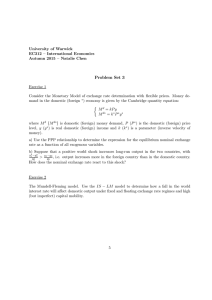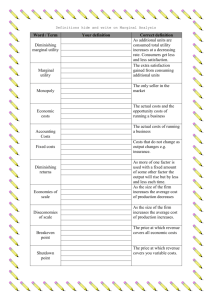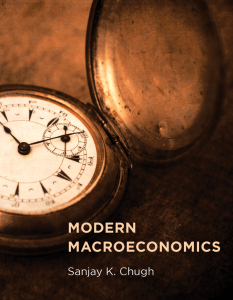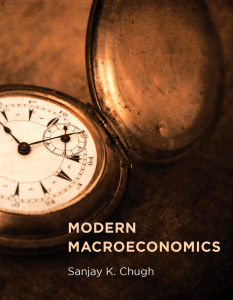Economics 103
advertisement
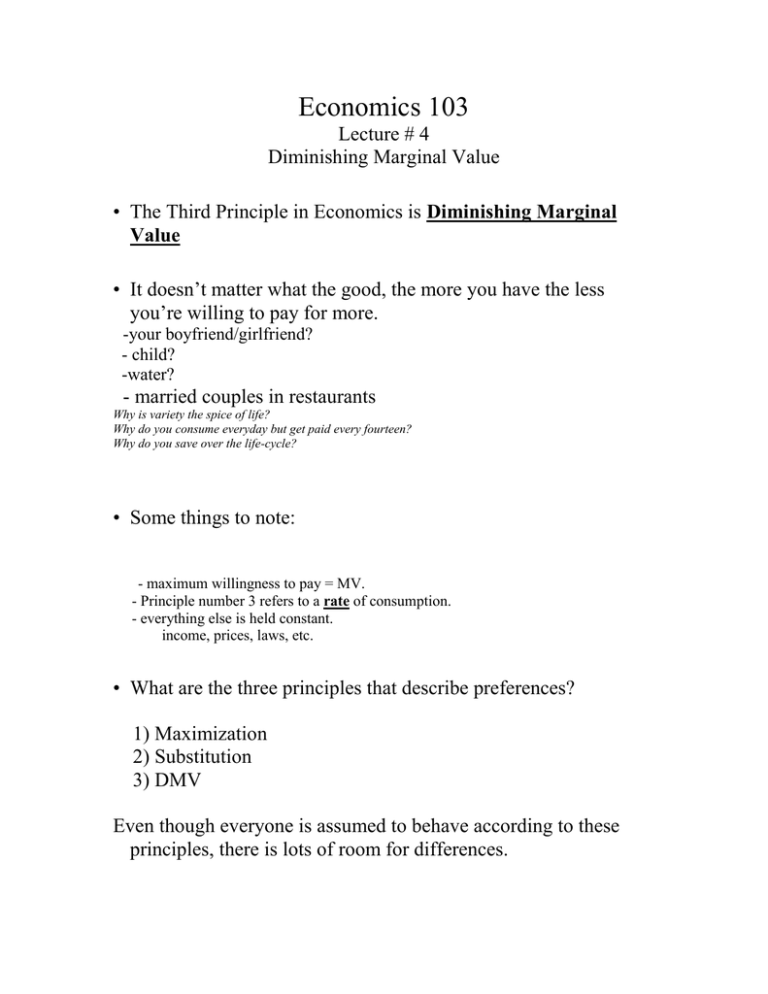
Economics 103 Lecture # 4 Diminishing Marginal Value • The Third Principle in Economics is Diminishing Marginal Value • It doesn’t matter what the good, the more you have the less you’re willing to pay for more. -your boyfriend/girlfriend? - child? -water? - married couples in restaurants Why is variety the spice of life? Why do you consume everyday but get paid every fourteen? Why do you save over the life-cycle? • Some things to note: - maximum willingness to pay = MV. - Principle number 3 refers to a rate of consumption. - everything else is held constant. income, prices, laws, etc. • What are the three principles that describe preferences? 1) Maximization 2) Substitution 3) DMV Even though everyone is assumed to behave according to these principles, there is lots of room for differences. What Prevents us from consuming whatever we want? The Budget Constraint. M = Px X + P y Y Y = M/Py - Px/Py X • Real Income: Income in terms of real goods. - how many hours of work did it take to purchase my $113 10 speed in 1972? - almost 70. - Son worked 30 hours @ $8/hour. true, the bikes are not the same, but his income looks higher without adjusting for quality. • Real Income. This is my friend Dean Clearly the nominal incomes don’t mean Much. You would want to know .. - the exchange rate - the prices of goods - the quality and availability of goods A major reason why nominal incomes don’t measure real utility is due to inflation. M/Py = 10M / 10Py - nb: there is no unique measure of real income, it depends on the price level you use. • Relative Prices - measures prices in terms of the number of other goods one must sacrifice. If Py = $8 and Px = $4 then: Px / Py = .5 For every one unit of X consumed, you must sacrifice ½ a unit of Y. Why focus on Real Income and Relative Prices? - because they determine behavior. - behavior doesn’t depend on nominal income or prices. The Budget Constraint tells us what you are able to consume. The 3 principles tell us what you are willing to consume. They come together in what is called The Law of Demand
